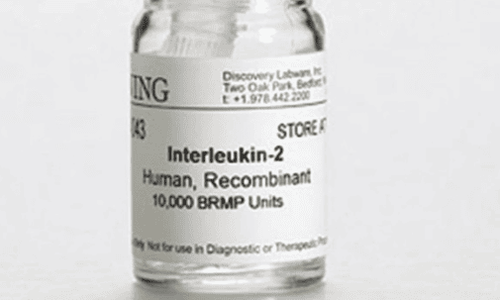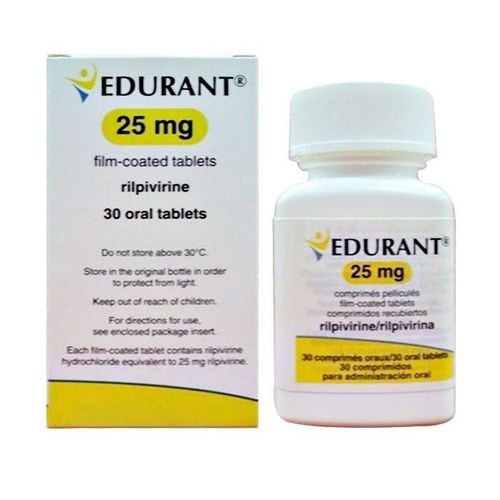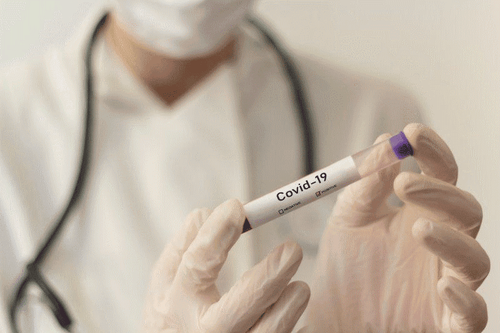This is an automatically translated article.
Patients with acute leukemia who are affected by a neurological condition can start with Blinatumomab. So what is Blinatumomab drug, in the process of taking it, does it have any side effects?
1. What disease does Blinatumomab treat?
Blinatumomab is a dual-specific T-cell-interacting monoclonal antibody (BiTE). This active ingredient works by activating the body's T cells (part of the immune system) that target and destroy cells that have the CD19 protein on their surface. CD19 is found on the surface of cells in B-cell leukemias and lymphomas. Blinatumomab is used to treat acute leukemia.
2. How to take Blinatumomab
Blinatumomab is infused into the patient's body by continuous intravenous infusion. The number of treatment cycles with Blinatumomab is determined by the treating physician. Occasionally, patients need hospital care during an infusion of Blinatumomab. This is because when you first start taking Blinatumomab, you may experience side effects that cannot be controlled at home or the dose of Blinatumomab you are receiving may change. Patients will receive steroid injections ( dexamethasone ) before starting treatment with Blinatumomab and can be injected as needed.
Once the patient is able to tolerate this Blinatumomab at home, the patient will have an onsite nurse to help manage the treatment. Patients should have the contact information of a qualified person to contact if the patient's Blinatumomab infusion pump alarms at any time of the day. It is important during administration that the patient follow the instructions given by the home nurse and physician regarding the administration of the Blinatumomab pump while the patient is at home. Patients should not change any settings or attempt to fix any problems with the pump without first consulting a medical professional.
While taking Blinatumomab, you should not drive, operate heavy machinery or do any dangerous activities because Blinatumomab increases the risk of neurological side effects. The patient also received certain vaccines while taking Blinatumomab .
3. Possible side effects of Blinatumomab
Some common side effects of the drug Blinatumomab:
3.1. Cytokine release syndrome or infusion reactions Cytokine release syndrome (CRS) may occur. T cells are activated by the drug Blinatumomab before being destroyed, causing them to release more cytokines. Cytokines cause an inflammatory response in the body - similar to when the body has a severe infection. This reaction, if left untreated, can be life-threatening. The doctor will monitor the patient closely for CRS or allergic reactions. During the infusion, if the person has difficulty breathing or swallowing, swelling of the face, chest pain, "fast pounding" heart, cough or wheezing, flushing, hives, rash, nausea, vomiting, dizziness dizziness, headache, fever, chills or tremors... notify the nurse immediately. Additional medications may be prescribed to reduce patient discomfort.
3.2. Nervous problems Patients can experience serious neurological complications, which can occur at any time, even weeks or more, during the infusion of Blinatumomab. These can include seizures, confusion, disorientation, difficulty speaking or stuttering, loss of balance, and loss of consciousness. Notify your care team right away if you have any neurological changes. Because of possible side effects, you should not drive or operate heavy machinery.
3.3. Infections, leukopenia Blinatumomab can cause life-threatening infections, with or without lowering the white blood cell count. Leukemia cells (WBCs) are important for fighting infection. While being treated, a person's white blood cell count may drop, putting the patient at higher risk of infection. Patients should notify your doctor or nurse immediately if a fever higher than 38°C is accompanied by a sore throat or cold, difficulty breathing, cough, burning when urinating...
Some recommendations by your doctor to limit infection while taking Blinatumomab:
Wash your hands often; Limit going to crowded places or contact with people showing signs of infection (people showing signs of cold, fever, cough or living with someone with these symptoms); Do not dispose of pet waste while being treated with Blinatumomab; Keep skin wounds or scratches clean at all times; Bathing, personal hygiene, regular dental care; Do not remove corners or trim ingrown fingernails/toenails; Talk to your oncologist before having a dental procedure while taking Blinatumomab; Consult your doctor before receiving any vaccine while taking Blinatumomab. 3.3. Allergic reactions to Blinatumomab In some cases, patients may be allergic to Blinatumomab. Signs of an allergic reaction to Blinatumomab may include: shortness of breath or difficulty breathing, chest pain, rash, flushing, itching, or a drop in blood pressure. If you notice any changes in sensation during the Blinatumomab infusion, let the nurse know right away.
3.4. Low red blood cell count Red blood cells are responsible for transporting oxygen in the blood to supply tissues in the body, so a low number of these cells will cause the organs in the body to be deprived of oxygen to function. , manifesting symptoms such as fatigue or lack of energy. Patients should inform their doctor if they develop symptoms of anemia such as shortness of breath, fatigue or chest pain during treatment with Blinatumomab. Some cases of red blood cell counts that are too low due to Blinatumomab may require a blood transfusion.
3.5. Headache The doctor may recommend medications and other measures to help relieve the pain.
3.6. Low Platelet Count Platelets are part of the blood clotting process, so a low platelet count leads to a higher risk of bleeding. If you are taking Blinatumomab, tell your doctor if you notice bruising or unusual bleeding (bleeding from the nose or teeth, bloody urine, etc.). Platelet transfusion is necessary if the patient's platelet count is too low while taking Blinatumomab.
Besides, patients should also avoid some activities that can cause bleeding during treatment with Blinatumomab as follows:
Using razors; Playing contact sports that have the potential to cause injury or bleeding; Concomitant use of Blinatumomab with Aspirin or non-steroidal anti-inflammatory drugs (NSAIDs); Use dental floss, toothpicks; Do not brush your teeth with a toothbrush that is too stiff. 3.7. Important but less common side effects of Blinatumomab Pancreatitis: Blinatumomab can cause pancreatitis. Tell your doctor if you have bloating, indigestion, fatty stools, loss of appetite, sweating, pain. belly or weight loss. Tumor lysis syndrome: If there are a large number of tumor cells in the body prior to treatment, the patient is at risk of tumor lysis syndrome, which occurs when tumor cells die too quickly and Their waste overwhelms the body. At this point, the patient may be prescribed medication (allopurinol) and intravenous fluids to help prevent this. If you still feel nausea, vomiting, diarrhea, or lethargy (drowsiness, lethargy), tell your oncologist right away. Blinatumomab can affect kidney function, your doctor will monitor your kidney function with blood tests, you need to have little or no urine output. Hepatotoxicity: Blinatumomab can cause liver toxicity, blood tests are needed to check liver function. Notify the doctor immediately if the patient notices yellow skin or eyes, dark or brown urine, pain in the abdomen... these could be signs of liver toxicity. 3.8. How does Blinatumomab affect fertility? Blinatumomab exposure to the fetus can lead to birth defects, so patients should not become pregnant or father a child during cancer treatment with Blinatumomab. The use of effective birth control or birth control is essential, especially during treatment and for at least 1 week after the end of Blinatumomab therapy. Even if the menstrual cycle stops or the patient believes that he or she is not producing sperm, conception is still possible. Note that the patient should not breast-feed while taking Blinatumomab and for at least 1 week after the end of treatment.
In summary, Blinatumomab is a dual-specific T-cell-interacting monoclonal antibody (BiTE). This active ingredient works by activating the body's T cells (part of the immune system) to target and destroy cells that have the CD19 protein on their surface. CD19 is found on the surface of cells in B-cell leukemias and lymphomas. Blinatumomab is used to treat acute leukemia.
Follow Vinmec International General Hospital website to get more health, nutrition and beauty information to protect the health of yourself and your loved ones in your family.
Please dial HOTLINE for more information or register for an appointment HERE. Download MyVinmec app to make appointments faster and to manage your bookings easily.
Reference source: oncolink.org












